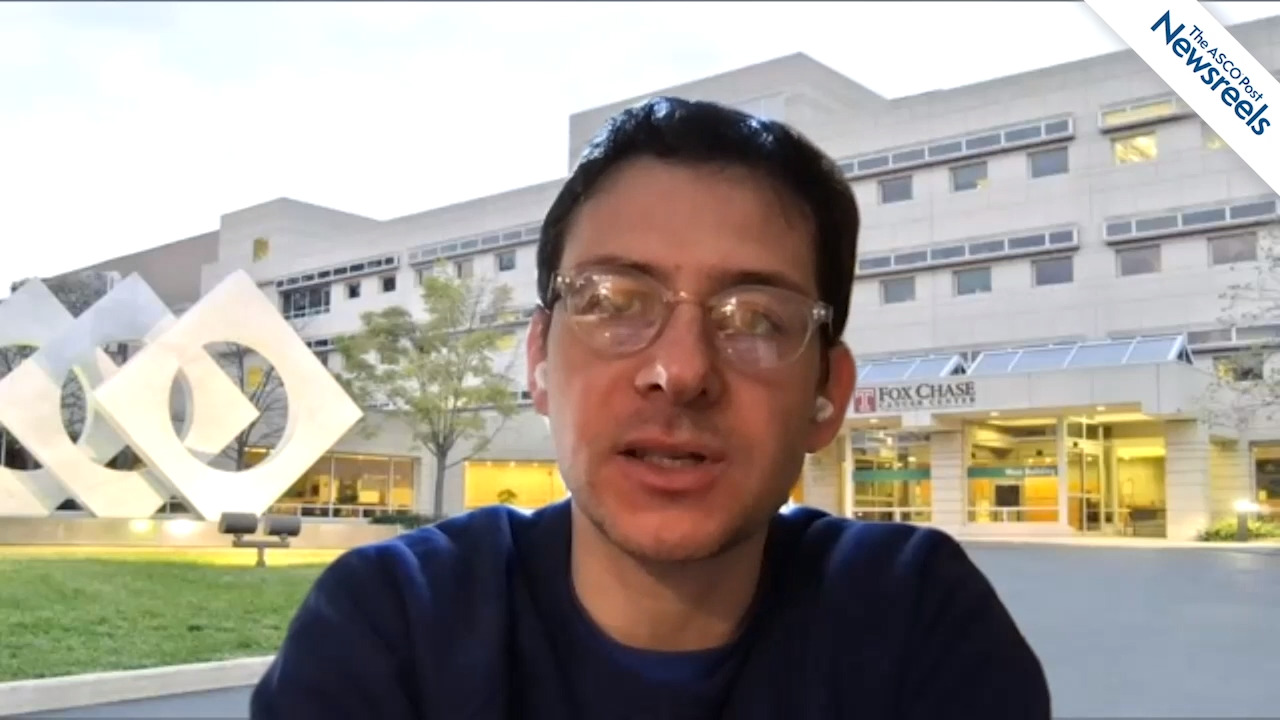Sumanta K. Pal, MD, on Papillary RCC: Sunitinib vs Cabozantinib, Crizotinib, or Savolitinib in Metastatic Disease
2021 Genitourinary Cancers Symposium
Sumanta K. Pal, MD, of City of Hope, discusses phase II results from the SWOG 1500 study, which showed that compared with crizotinib and savolitinib, cabozantinib was the only agent that prolonged progression-free survival vs sunitinib in patients with metastatic papillary renal cell carcinoma (Abstract 270).
The ASCO Post Staff
Monika Joshi, MD, of Penn State Hershey Cancer Institute, discusses phase II results from the DUART study, which explored the efficacy of concurrent durvalumab, a checkpoint inhibitor, and radiation therapy followed by adjuvant durvalumab in patients with localized urothelial cancer of the bladder (Abstract 398).
The ASCO Post Staff
Toni K. Choueiri, MD, of Dana-Farber Cancer Institute, discuses a preliminary phase II analysis of the HIF-2a inhibitor belzutifan in combination with cabozantinib, which showed antitumor activity in previously treated patients with metastatic clear cell renal cell carcinoma (Abstract 272).
The ASCO Post Staff
Christopher Sweeney, MBBS, of Dana-Farber Cancer Institute, discusses phase III findings from the IPATential150 trial, which showed the effectiveness of ipatasertib plus abiraterone as first-line treatment in patients with metastatic castration-resistant prostate cancer vs placebo plus abiraterone. Analyses of biomarkers linked to the PI3K/AKT pathway, a subtype with a poor prognosis, further support this therapeutic option (Abstract 13).
The ASCO Post Staff
Toni K. Choueiri, MD, of Dana-Farber Cancer Institute, discusses phase III results of the CLEAR study, which showed that for first-line treatment of advanced renal cell carcinoma, lenvatinib plus pembrolizumab improved outcomes vs sunitinib. Lenvatinib plus everolimus also improved progression-free survival and overall survival rates vs sunitinib (Abstract 269).
The ASCO Post Staff
Daniel M. Geynisman, MD, of Fox Chase Cancer Center, discusses phase II results from the RETAIN BLADDER study, which sequenced bladder tumor samples while treating patients with neoadjuvant methotrexate, vinblastine, doxorubicin, and cisplatin chemotherapy. The goal was to increase metastasis-free survival and also preserve the bladder and quality of life (Abstract 397).





